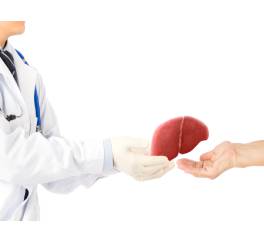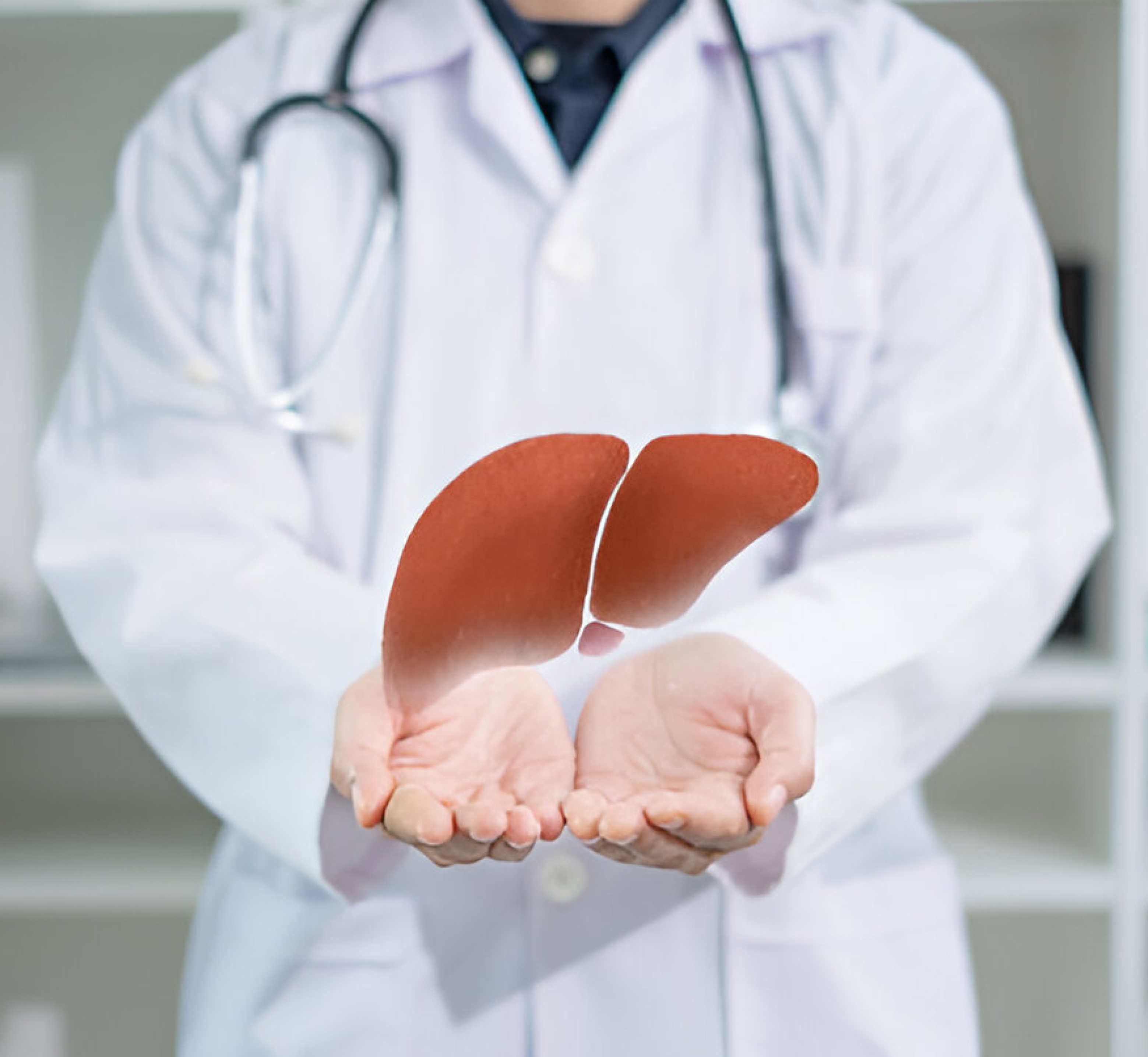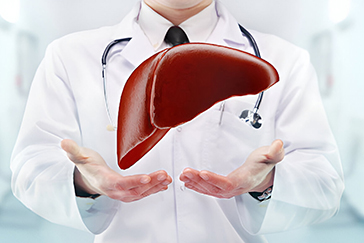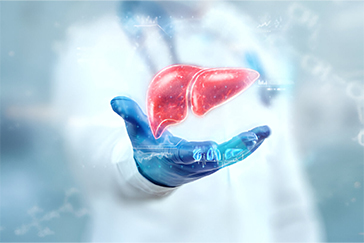 Book Appt.
Book Appt.
 Call Now
Call Now


Introduction
Hepatocellular carcinoma is the most frequent type of liver cancer. It is an aggressive (fast-growing) cancer that most commonly affects people with severe liver disease, such as cirrhosis. People with HCC are increasingly being diagnosed with metabolic dysfunction-associated steatotic liver disease (MASLD), which can develop into cirrhosis. Initially, hepatocellular carcinoma grows slowly. Early-stage HCC can be treated with surgery to remove the tumor or a liver transplant. However, most people are unaware of their condition until it has progressed and is spreading more rapidly. Eventually, it can result in liver failure. At this point, HCC is difficult to treat.
Symptoms
Tumors may not present symptoms in their early stages. However, as HCC progresses, you may notice symptoms such as fullness or a knot under your ribs on your right side (symptoms of an enlarged liver), fullness under your ribs on your left side (symptoms of an enlarged spleen), eyes and skin turning yellow (signs of jaundice), a stomach that feels swollen, as if it's filling up with fluid, loss of appetite or feeling full after a small meal, unexplained weight loss, nausea and vomiting, and itching.
Many illnesses produce identical symptoms, and the majority are less dangerous than hepatocellular carcinoma. So if you have one or more of these symptoms, don't panic. However, if your symptoms persist for more than two weeks, you should consult a doctor.
Causes
The majority of persons diagnosed with HCC have cirrhosis of the liver (about 80%), however, some have a disease that can progress to cirrhosis. In certain cases, the disease never advances to cirrhosis, but patients get HCC. With these circumstances, uncontrolled long-term liver inflammation can cause significant scarring and, eventually, HCC.
Diagnosis and Tests
Your healthcare professional will perform a physical examination. They will also inquire about your medical history, symptoms, and lifestyle. Blood tests, imaging scans, and liver biopsy are all testing that can help confirm a diagnosis. HCC is a unique malignancy because, in persons with cirrhosis, clinicians can make a diagnosis based on the tumor(s) having specific features on an MRI or CT scan without doing a sample.
How is HCC organized?
Cancer staging for HCC allows your doctor to identify how advanced it is. It also assists them in planning therapies and determining their prognosis (outlook). To stage HCC, providers take into account the size of the tumor and how much it has progressed into neighboring tissue (including your lymph nodes), how far it has migrated outside your liver (metastatic carcinoma), and the severity of the underlying liver illness.
Management and Treatment
Treatments include:
Surgery: HCC can be treated surgically with a hepatectomy (the removal of the diseased section of the liver) or a liver transplant. If the tumour just affects one portion of your liver, you may be treated with a hepatectomy. If your liver is not healthy enough to undergo a hepatectomy, a liver transplant may be an alternative.
Ablation therapy: Ablation providers use a specially designed needle to burn tumours. The needle can direct energy that is highly hot (microwaves or radio frequency waves) or extremely cold.
Embolization: Embolisation involves inserting a material directly into the arteries that supply the tumor, effectively blocking blood flow. Chemoembolization involves implanting a material containing chemotherapeutic medicines. Radioembolization is the process of implanting tiny radiation beads.
Radiation therapy: Radiation therapy may be recommended by providers to treat tiny tumors that cannot be removed surgically or destroyed through ablation. Providers employ stereotactic body radiation therapy (SBRT) to treat HCC.
Immunotherapy: Immunotherapy drugs can also be used to treat advanced HCC. They help your immune system recognize and combat cancer cells.
Targeted therapy: Targeted therapy medications are used to treat advanced HCC. This medication inhibits the signal that tells cancer cells to continue growing.
Your healthcare practitioner may recommend that you participate in a clinical study to test novel HCC treatments. They may also suggest palliative care to assist you manage cancer symptoms and medication adverse effects. Palliative care can improve your quality of life, whether you have a long-term condition or are being treated for early-stage, curable HCC.
Prevention
There are several ways you can reduce your risk of developing HCC. You can:
Get your hepatitis B vaccination, or get regular check-ups if you already have hepatitis B.
See your healthcare provider if you think you may have been exposed to hepatitis C.
Work with your provider to manage metabolic conditions associated with MASLD. Maintaining a weight thats healthy for you by eating healthy foods is key.
Cut back on the amount of alcohol you drink.
Stop smoking if you do.
Conclusion
Hepatocellular carcinoma (HCC) is a complex and dangerous liver cancer that presents major problems to both patients and healthcare providers. While the prognosis can be bleak, early detection and a tailored treatment plan can lead to better outcomes and quality of life. For more information, visit SHALBY Sanar International Hospital, Gurugram.
SHALBY Sanar International Hospitals provides extensive medical procedures backed up with our state-of-the-art technology and a team of highly qualified & experienced clinical experts.
Our doctors pen down their research findings and experiences from time to time. Their words provide deep insight into the latest techniques, technologies and other advancements in healthcare. It provides expert answers to all kinds of health questions for real-life issues.
VIEW ALL




Since the day of its foundation, SHALBY Sanar International Hospitals is committed to provide comprehensive healthcare services. It regularly organizes awareness programs in its premises and encourages outdoor healthcare activities and camps with an intent to put focus on preventive healthcare.
VIEW ALL